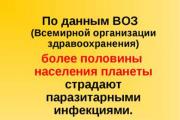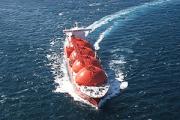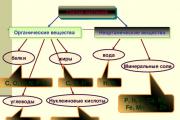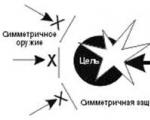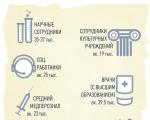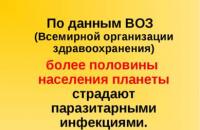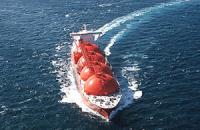Cargo and commercial engineer
Job responsibilities. Provides acceptance from the railway of cargo transportation documents, wagons, seals and cargo on open rolling stock. Provides receipt of general forms and commercial acts in cases provided for by the Railway Charter and the Rules for the Transportation of Goods. Ensures the preparation of freight invoices for wagons arriving from the railway for their transportation along the access track, as well as the delivery of wagons, seals and cargo on open rolling stock to consignees. Provides consignees with information about the arrival of wagons and cargo at their address. Keeps records of wagon downtime due to the fault of consignees. Monitors the correct loading and securing of cargo. Provides cleaning of wagons after unloading. Provides search for cargo and wagons in the prescribed manner through the Ministry of Transport of Russia. Considers transportation claims from consignees and rolling stock owners. Monitors the correct loading of goods sent from the access road. Participates in the work of the commission for acceptance of oversized and heavy cargo for transportation. Timely prepares transportation documents for wagons and cargo. Suspends loading and unloading operations that do not ensure the safety of cargo and rolling stock. Prepares documents to recover material damages for damage to rolling stock. Represents the interests of the organization on transportation issues at the junction station.
Must know: laws and other regulatory legal acts of the Russian Federation, methodological and regulatory documents relating to the operation of railway transport; cargo transportation rules; rules for the transportation of dangerous, oversized, heavy cargo; rules for registering cases of unsafe transportation and filing claims and lawsuits for unsafe transportation; rules for carrying out cargo and commercial operations at railway stations of departure, along the route and at railway stations of destination; norms, tariffs and rates for the use of cars and containers of federal railway transport; rules for concluding contracts; fundamentals of economics, organization of production, labor and management; basics of labor legislation; environmental regulations; labor protection and fire safety regulations; internal labor regulations.
Qualification requirements.
Cargo and commercial engineer of category I: higher professional (technical) education and work experience as a cargo and commercial engineer of category II for at least 3 years.
Cargo and commercial engineer of category II: higher professional (technical) education and work experience as a cargo and commercial engineer for at least 3 years.
Freight and commercial engineer: higher professional (technical) education without any work experience requirements.
Changes are coming at the Faculty of Transportation Process Management: graduates of specialty 190401 "Operation of Railways", being general professionals, will stock up on an individual set of industry-specific knowledge.
From September 1, 2014, new specializations will appear in the specialty “Operation of Railways”: “Line-line transport”, “Industrial transport”, “Freight and commercial work”, “Passenger complex of railway transport”, “Transport business and logistics” . The first four will be characterized by full-time and part-time forms of study, while the last four will offer only full-time study. It should be noted that Roszheldor approved budget places in three specializations: “Long-Range Transport”, “Freight and Commercial Work”, “Passenger Railway Transport Complex”
The head of the Department of “Stations, Units and Freight Work” of the USGUPS, S. A. Plakhotic, spoke about the new specializations.
– Are there differences in training in different specializations?
– Applicants enter the specialty, and the division into specializations occurs after the 3rd year. Students study the general disciplines required by all railway engineers, and then determine for themselves the industry in which they would like to work. As for the target students, the organizations sending them should target the guys in advance for one or another specialization.
All graduates of the specialty “Operation of Railways” are awarded the qualification “Specialist in Operation of Railways”. Specialization is reflected only in the annex to the diploma, which contains a list of certain disciplines.
– What will be included in the scope of activity of a graduate of each specialization?
– Curriculums for specializations consist of three blocks. The first two differ slightly. Thus, each of them has one highly specialized discipline: outsourcing (contractual involvement of third-party organizations) and information technology in the industry chosen by the student. The third block is professional, and therefore each specialization has its own list of disciplines.
Graduates of the "Long-Range Transport" specialization are in charge of organizing freight and passenger transportation, interaction with industrial transport, railway design. stations and hubs, organization of work of forwarding companies, transportation and tariffs in international communications.
Engineers specializing in "Industrial Transport" are responsible for organizing transportation on industrial transport, designing industrial railways. transport, operation and repair of technical equipment, resolving issues regarding the functioning of transport of industrial enterprises.
Specialists in the industry "Cargo and commercial work" are responsible for technical and technological support and design of multimodal transportation, commercial, legal and information support for freight transportation.
Graduates of the specialization "Passenger complex of railway transport" can be engaged in designing the infrastructure of the passenger complex, managing passenger companies; Their competence also includes the operation and repair of passenger cars, operating technology and operation of station complexes.
The scope of activities of logistics graduates includes project management in transport business and logistics, information support for transport business, business planning in transport, and supply chain management.
– Where will graduates of each specialization work?
– All graduates of the specialty “Operation of Railways” have equivalent diplomas, so there is no strict professional distribution.
Mainline transport specialists can work as dispatchers at different levels, station attendants, operators, etc.
Graduates of the "Industrial Transport" specialization can become managers of transport departments at industrial enterprises with railways. non-public routes, as well as by managers on industrial railways. transport.
Freight and commercial work specialists collaborate with shippers and consignees; they are the ones who “make money” for the rest of the railroad workers.
Graduates of the "Passenger Transport" specialization can work in the directorates for servicing passengers and stations, in suburban companies, and in the federal passenger company.
The most mobile graduates of the specialty are logisticians. They can be found in various forwarding and transport companies.
So, if you are attracted by the romance of the roads and want to find the right path not only for yourself, but also for others, welcome to the friendly family of railway workers!
The word engineering comes from the Latin word ingenium - skill, ingenuity. Thus, the art of engineering is an activity aimed at the process of inventing new technologies. At the same time, as you understand, engineering technologies supply many industries with their ideas, from construction and mechanical engineering to chemistry, pharmacology and medicine.
But which engineers will be most in demand by humanity in the near future?
The other day, the American digital media resource Mashable asked this question and came up with a list of four engineering professions that will be most in demand in the future.
It is estimated that in five years, by 2020, the Millennial generation, that is, people born between 1980 and 1990, will occupy 50% of the jobs on the planet. This means that it is they who will determine our future.
So, it is assumed that the most popular engineering profession will be any activity related to computer technology. And this is not surprising, because today such processes are still in their infancy. This industry is controlled by monopolists such as Google, Apple and Microsoft, which, in fact, are the only ones producing computer products for mass use, imposing them on humanity, and also forcing them to play by the rules beneficial to mega-corporations.

Meanwhile, history has repeatedly demonstrated that any activity that allows only the existence of several monopolists is doomed to failure, which means, no matter how you look at it, humanity will strive to make these technologies publicly available. It is believed that in this area, a person’s career opportunities are limited only by his talents and abilities, which means, in fact, they are limitless. More and more companies are using computer developments and virtual reality in their activities in order to reduce production costs and attract the attention of a younger audience.
Mechanical engineering
The creation of various mechanisms that help people in production and everyday life has acquired particular relevance in the last 70-80 years. Every day we read about the release of super-smart cars, drones, spacecraft and underwater systems.

Man already wants to completely master not only his own planet, but also the nearest space. He needs completely new technology, convenient, ergonomic, cheap and environmentally friendly. This means that society’s demand for such engineers will only grow. Most likely, in the near future, humanity will begin to create fundamentally new mechanisms that can replace the outdated internal combustion engine and machines that use fossil fuels.
Medicine and healthcare
For a long time now, medicine and healthcare have merged with engineering, using its developments in the production of implants, medications, therapeutic techniques and medical equipment.

And this means that engineers working in this area will be in great demand. After all, a person wants to live forever, and live healthy. Biomedicine will be the main healthcare sector of the future, developing bionics and nanomedicine technologies. In this area, engineers will occupy a special, perhaps even dominant position.
Construction and architecture
This area will never become obsolete, because people always need housing. Construction and architectural technologies are a constantly evolving art, which means any professions related to them will be in demand.

Current trends in this area are the use of clean energy, energy efficiency, space saving, “smartness” of buildings and their versatility. Today, architects and civil engineers need to work closely with computer engineers and bioengineers, chemists and physicists who are able to realize the needs of modern society. This is an interesting, dynamic and diverse job that will appeal to the Millennial generation.
ECSD 2018. Revision dated April 9, 2018 (including those with changes that entered into force on July 1, 2018)
To search for approved professional standards of the Ministry of Labor of the Russian Federation, use directory of professional standards
Cargo and commercial engineer
Job responsibilities. Provides acceptance from the railway of cargo transportation documents, wagons, seals and cargo on open rolling stock. Provides receipt of general forms and commercial acts in cases provided for by the Railway Charter and the Rules for the Transportation of Goods. Ensures the preparation of freight invoices for wagons arriving from the railway for their transportation along the access track, as well as the delivery of wagons, seals and cargo on open rolling stock to consignees. Provides consignees with information about the arrival of wagons and cargo at their address. Keeps records of wagon downtime due to the fault of consignees. Monitors the correct loading and securing of cargo. Provides cleaning of wagons after unloading. Provides search for cargo and wagons in the prescribed manner through the Ministry of Transport of Russia. Considers transportation claims from consignees and rolling stock owners. Monitors the correct loading of goods sent from the access road. Participates in the work of the commission for acceptance of oversized and heavy cargo for transportation. Timely prepares transportation documents for wagons and cargo. Suspends loading and unloading operations that do not ensure the safety of cargo and rolling stock. Prepares documents to recover material damages for damage to rolling stock. Represents the interests of the organization on transportation issues at the junction station.
Must know: laws and other regulatory legal acts of the Russian Federation, methodological and regulatory documents relating to the operation of railway transport, rules for the transportation of goods, rules for the transportation of dangerous, oversized, heavy cargo, rules for registering cases of unsafe transportation and filing claims and lawsuits for unsafe transportation, rules for carrying out cargo and commercial operations at railway stations of departure, en route and at railway stations of destination, norms, tariffs and rates for the use of cars and containers of federal railway transport, rules for concluding contracts, basics of economics, organization of production, labor and management, basics of labor legislation, rules for environmental protection, labor protection and fire safety rules, internal labor regulations.
Qualification requirements.
Cargo and commercial engineer of category I: higher professional (technical) education and work experience as a cargo and commercial engineer of category II for at least 3 years.
Cargo and commercial engineer of category II: higher professional (technical) education and work experience as a cargo and commercial engineer for at least 3 years.
Freight and commercial engineer: higher professional (technical) education without any work experience requirements.
Vacancies for the position of Freight and Commercial Work Engineer on the all-Russian vacancy database
0.1. The document comes into force from the moment of approval.
0.2. Document developer: _ _ _ _ _ _ _ _ _ _ _ _ _ _ _ _ _ _ _ _ _ _ _.
0.3. The document has been approved: _ _ _ _ _ _ _ _ _ _ _ _ _ _ _ _ _ _ _ _ _ _ _ _.
0.4. Periodic verification of this document is carried out at intervals not exceeding 3 years.
1. General provisions
1.1. The position "Head of the cargo and commercial work service" belongs to the "Managers" category.
1.2. Qualification requirements - complete higher education in the relevant field of study (master, specialist). Work experience in the specialty - at least 5 years.
1.3. Knows and applies in practice:
- decrees, orders and other regulatory documents on cargo and commercial work;
- Charter of inland water transport;
- Railway Charter;
- Charter of motor transport;
- rules for transporting goods on river, sea, rail and road transport;
- rules for the transportation of goods in direct mixed rail and water transport;
- tariff guide;
- organization of cargo and commercial work in transport;
- advanced domestic and foreign experience in the field of cargo and commercial work;
- basics of computer science, capabilities of computer technology (PC);
- rules and regulations of labor protection, fire protection;
- basics of labor legislation.
1.4. The head of the cargo and commercial work service is appointed to the position and dismissed from the position by order of the organization (enterprise/institution).
1.5. The Head of Cargo and Commercial Operations reports directly to _ _ _ _ _ _ _ _ _ _ .
1.6. The head of cargo and commercial work supervises the work of _ _ _ _ _ _ _ _ _ _ .
1.7. During absence, the head of the cargo and commercial work service is replaced by a person appointed in accordance with the established procedure, who acquires the appropriate rights and is responsible for the proper performance of the duties assigned to him.
2. Characteristics of work, tasks and job responsibilities
2.1. Organizes cargo and commercial work in a shipping company (shipping line) to implement the transportation plan.
2.2. Takes the necessary measures to transfer cargo to river transport, including in lightly loaded directions, improve the organization of transportation in direct mixed rail-water communication and in combination between sea and river ports, develop transportation in universal and special containers and introduce other rational methods of transporting goods .
2.3. Provides work on concluding contracts and agreements with clients for the rental of warehouses, loading and unloading mechanisms, transportation of goods, towing ships and other work related to transportation, and monitors the implementation of these contracts and agreements.
2.4. Organizes the delivery of cargo to ports (piers) and shippers' berths during the non-navigation period, announces the deadlines for the acceptance of cargo by ports (piers) from the railway.
2.5. Based on planned requests from clients, taking into account the transport capacity of the fleet, develops quarterly transportation plans with a monthly breakdown by type of transportation and cargo.
2.6. Carries out operational accounting and analysis of the implementation of transportation and transshipment plans and makes proposals to the management of the shipping company (shipping company) regarding the necessary measures to increase the transportation of certain cargoes and shipments from transshipment points.
2.7. Through shippers and railway management, it ensures a uniform supply of cargo to transshipment points and free wagons to ports in accordance with planned standards.
2.8. Develops and implements measures to improve the quality of transportation and speed up the delivery of goods, keeps records and analyzes cases of cargo failure during transportation, monitors compliance with cargo delivery deadlines.
2.9. Analyzes current tariffs for cargo transportation, loading and unloading operations and develops proposals for their improvement.
2.10. Together with the basin route departments and shipping canal departments, it establishes and submits for approval tariff distances between ports (piers) of the shipping company, publishes information on local tariffs after their approval and monitors the correct application of tariffs.
2.11. Develops, together with the Port Facilities and Mechanization Service, measures that help increase the profitability of the operation of ports (wharves), takes measures to secure personnel for cargo and commercial workers of ports (wharves) during the non-navigation period.
2.12. Studies and summarizes best practices in the field of cargo and commercial activities and organizes their implementation.
2.13. Organizes and manages departmental investigations into cases of non-preservation of cargo and their poor-quality transportation and, based on the results of the investigation, prepares proposals for preventing cases of non-preservation of cargo.
2.14. Fills out the redirection of cargo in accordance with the current procedure, gives instructions to ports (piers) on these issues, keeps records and sales of cargo that does not have documents and is unclaimed.
2.15. Knows, understands and applies current regulations relating to his activities.
2.16. Knows and complies with the requirements of regulations on labor protection and environmental protection, complies with the norms, methods and techniques for the safe performance of work.
3. Rights
3.1. The Cargo and Commercial Operations Manager has the authority to take action to prevent and correct any irregularities or non-compliances.
3.2. The head of the cargo and commercial work service has the right to receive all social guarantees provided for by law.
3.3. The head of the cargo and commercial work service has the right to demand assistance in the performance of his official duties and the exercise of rights.
3.4. The head of the cargo and commercial work service has the right to demand the creation of organizational and technical conditions necessary for the performance of official duties and the provision of the necessary equipment and inventory.
3.5. The head of the cargo and commercial work service has the right to familiarize himself with draft documents relating to his activities.
3.6. The head of the cargo and commercial work service has the right to request and receive documents, materials and information necessary to fulfill his job duties and management orders.
3.7. The head of the cargo and commercial work service has the right to improve his professional qualifications.
3.8. The head of the cargo and commercial work service has the right to report all violations and inconsistencies identified in the course of his activities and make proposals for their elimination.
3.9. The head of the cargo and commercial work service has the right to familiarize himself with documents defining the rights and responsibilities of the position held, and criteria for assessing the quality of performance of official duties.
4. Responsibility
4.1. The head of the cargo and commercial work service is responsible for non-fulfillment or untimely fulfillment of the duties assigned by this job description and (or) non-use of the granted rights.
4.2. The head of the cargo and commercial work service is responsible for non-compliance with internal labor regulations, labor protection, safety precautions, industrial sanitation and fire protection.
4.3. The head of the cargo and commercial work service is responsible for the disclosure of information about the organization (enterprise/institution) related to trade secrets.
4.4. The head of the cargo and commercial work service is responsible for non-fulfillment or improper fulfillment of the requirements of internal regulatory documents of the organization (enterprise/institution) and legal orders of management.
4.5. The head of the cargo and commercial work service is responsible for offenses committed in the course of his activities, within the limits established by the current administrative, criminal and civil legislation.
4.6. The head of the cargo and commercial work service is responsible for causing material damage to the organization (enterprise/institution) within the limits established by the current administrative, criminal and civil legislation.
4.7. The head of the cargo and commercial work service is responsible for the unlawful use of the granted official powers, as well as their use for personal purposes.






